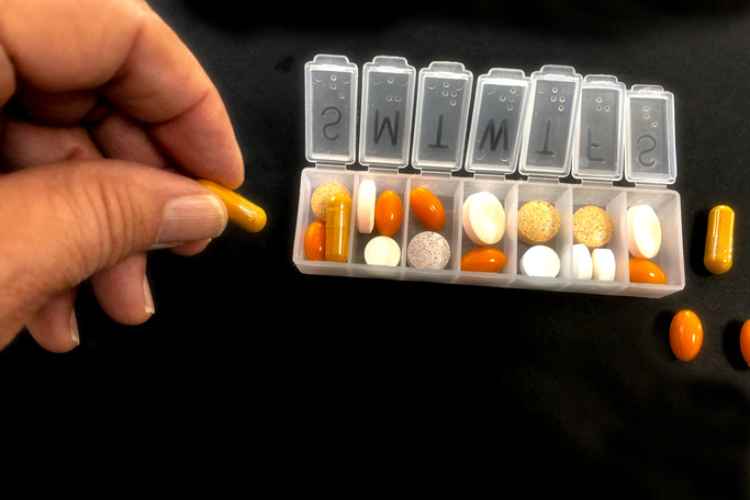Running out of prescription medication can be a stressful situation, especially if you’re unable to reach your doctor to get a refill. It’s important to handle the situation with care and find a solution that works for you. In this blog post, we’ll cover some of the steps you can take if you find yourself in this situation.
If You Have Unexpectedly Run Out of Medication, Consider These Steps
Step 1: Check for Refills
Before you panic, check to see if your prescription has any refills left, even if you think you don’t. If so, you may be able to simply call your pharmacy and request a refill without needing to contact your doctor. Many pharmacies offer automated phone systems or online portals where you can order refills and pick them up or even have them delivered. Call a local pharmacy to find out more.
Step 2: Contact Your Doctor’s Office
If you’ve exhausted your refills, the next step is to try to contact your doctor’s office. Even if your doctor is unavailable, their staff may be able to help you. They may be able to authorize a refill or provide you with a temporary prescription until you can see your doctor.
If your doctor’s office is closed, be sure to leave a message explaining your situation and the urgency of your need for medication. Many doctor’s offices have an on-call service for urgent situations, so you may be able to speak to a physician who can help you.
Step 3: Consider Telemedicine Services
If you’re unable to reach your doctor or their staff, you may want to consider using a telemedicine service. Telemedicine allows you to connect with a healthcare provider remotely, often through video conferencing or phone calls. They may be able to provide you with a temporary prescription or offer advice on how to manage your symptoms until you can see your doctor.
Step 4: Seek Urgent Care
If your symptoms are severe or you’re unable to find a solution through any of the above steps, you may need to seek urgent care. Urgent care centers are often open outside of regular business hours and can provide you with immediate medical attention. Be sure to bring any relevant medical information, such as a list of medications you’re currently taking, with you to the urgent care center.
Step 5: Consider Prescription Discount Programs
If you’re struggling to afford your medication or don’t have insurance, prescription discount programs may be able to help. These programs offer discounts on prescription medications and can often be found online or through your pharmacy. Some programs may require a membership fee or eligibility criteria, so be sure to research different options to find the best fit for you.
Step 6: Manage Symptoms at Home
While it’s not recommended to switch to a different medication without consulting your doctor, there may be alternative ways to manage your symptoms. You can research alternative medications or home remedies to help alleviate your symptoms until you can get a refill or see your doctor. However, it’s important to note that not all alternative options may be effective or safe, so be sure to consult with a healthcare provider before trying any new treatments, and always use your discernment.
Step 7: Plan Ahead
Again, when it comes to your health, it is important to be proactive. To prevent running out of medication in the future, it’s important to plan ahead. Keep track of your medication refills and be sure to order a refill before you run out. You can also ask your doctor for a longer prescription or larger dosage to help reduce the frequency of refills. Additionally, you can set reminders or use medication management apps to help you stay on top of your medication schedule.
Consult a Medical Professional
It’s also very important to note that while this article provides helpful tips and advice, it’s always recommended to consult with a healthcare provider before making any changes to your medication regimen. Your doctor knows your medical history and can provide personalized advice and guidance. Taking advice from the internet or self-diagnosing can lead to potential harm or exacerbate your symptoms. A lack of understanding about the effects of medications can make going without them downright dangerous, which is why a proactive approach is always recommended.
While it can be tempting to search for quick solutions online, it’s always best to speak with a medical professional to ensure that you’re receiving safe and effective treatment. If you’re unable to reach your doctor, consider reaching out to a telemedicine service or urgent care center for guidance.
Stay Calm and Contact Your Local Pharmacy
In conclusion, there are several steps you can take if you run out of prescription medication and can’t reach your doctor. Consider prescription discount programs, alternative medications or home remedies, and plan ahead to prevent future situations. It’s important to prioritize your health and find a solution that works for you. If you’re unsure of what to do, be sure to consult with a healthcare provider.
We hope that this article has provided some helpful tips for what to do if your prescription runs out and you can’t reach your doctor. However, we strongly recommend speaking with a healthcare provider for personalized advice and guidance. Your health and well-being are of utmost importance, and we encourage you to prioritize them by seeking professional medical care. Head to your local pharmacy to learn more.

